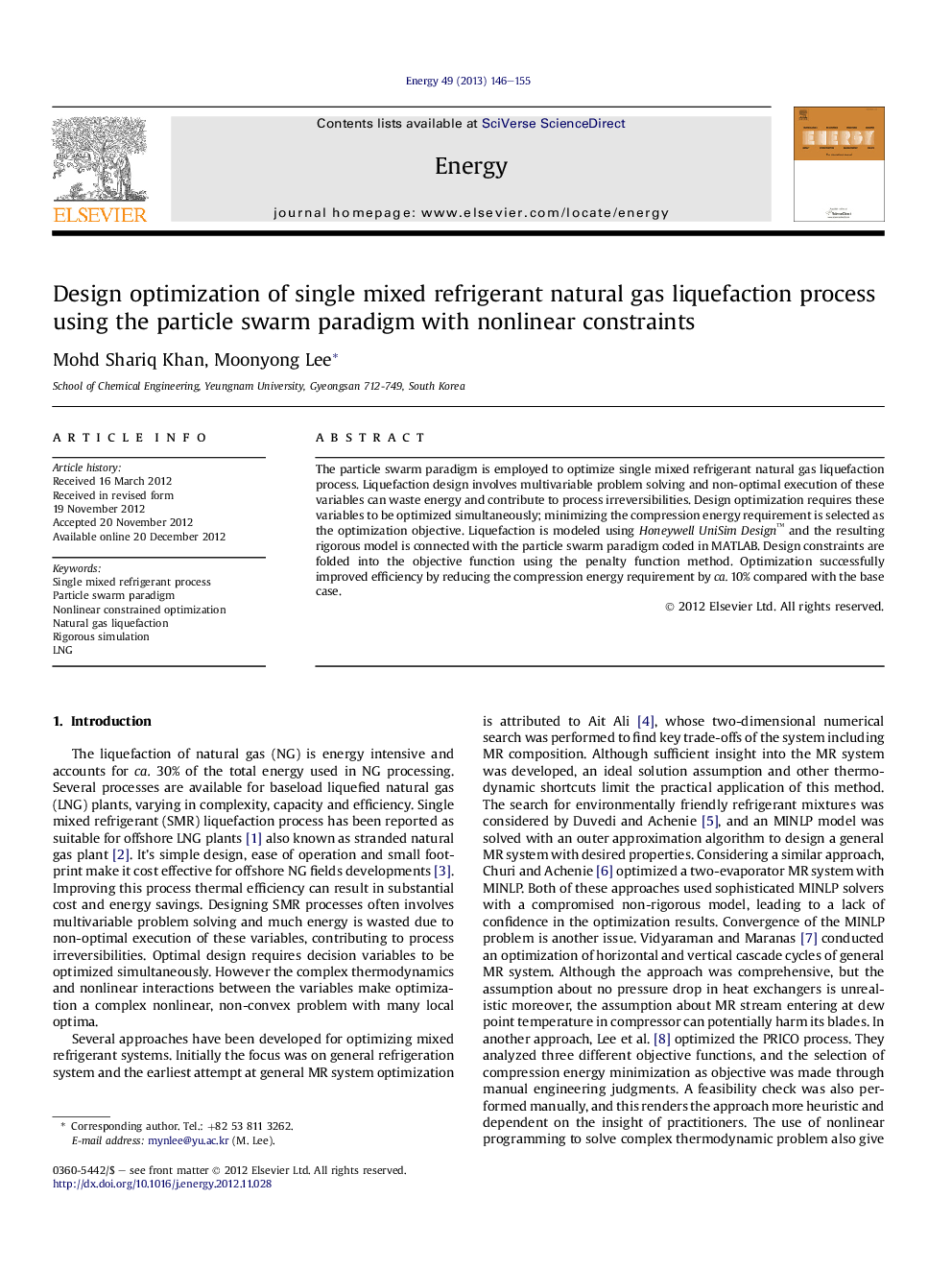| Article ID | Journal | Published Year | Pages | File Type |
|---|---|---|---|---|
| 1733277 | Energy | 2013 | 10 Pages |
The particle swarm paradigm is employed to optimize single mixed refrigerant natural gas liquefaction process. Liquefaction design involves multivariable problem solving and non-optimal execution of these variables can waste energy and contribute to process irreversibilities. Design optimization requires these variables to be optimized simultaneously; minimizing the compression energy requirement is selected as the optimization objective. Liquefaction is modeled using Honeywell UniSim Design™ and the resulting rigorous model is connected with the particle swarm paradigm coded in MATLAB. Design constraints are folded into the objective function using the penalty function method. Optimization successfully improved efficiency by reducing the compression energy requirement by ca. 10% compared with the base case.
► The particle swarm paradigm (PSP) is employed for design optimization of SMR NG liquefaction process. ► Rigorous SMR process model based on UniSim is connected with PSP coded in MATLAB. ► Stochastic features of PSP give more confidence in the optimality of complex nonlinear problems. ► Optimization with PSP notably improves energy efficiency of the SMR process.
